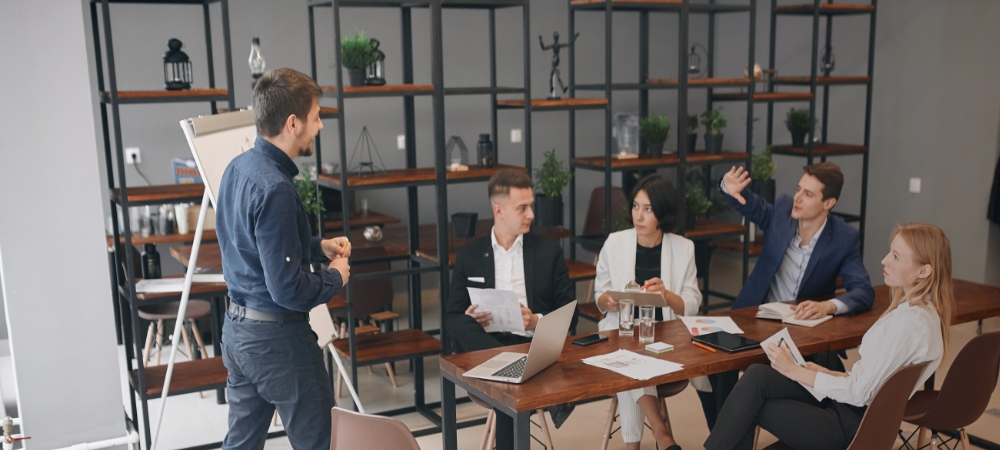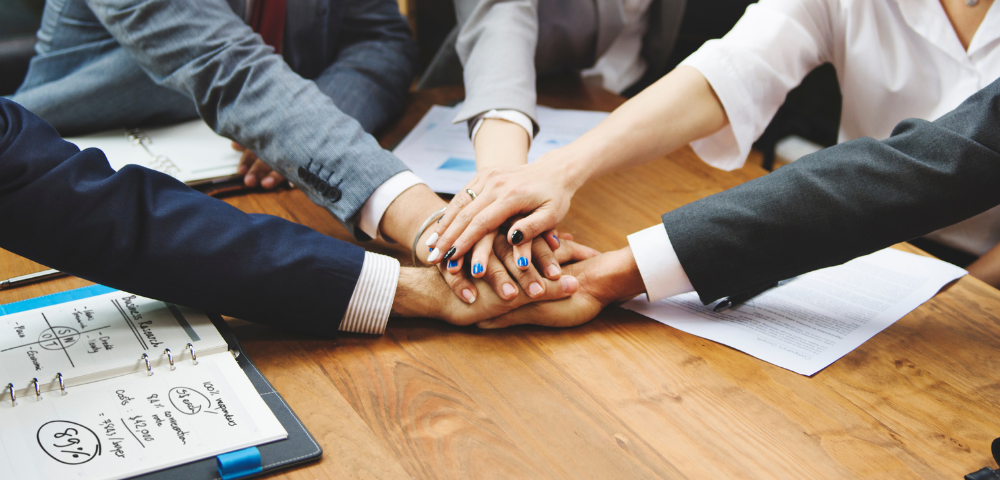Coronavirus which has been spreading all over the world and making it upside down for three months now, makes practically every field of occupation face significant challenges. People of various professions are already assuming that the pandemic has changed the world and rules of play not only for now. They expect, that still fully unexplored virus can forever alter some behaviors and everyday life of people.
New reality required businesses to provide answers to seemingly already familiar, already answered questions, while marketing as mediator between business and consumer, appeared one of the first on “frontline”. It is assumed that Covid-19 will result in need of updating the role and approaches of marketing so that under force-majeure, companies can better feel consumer’s heartbeat and needs, not only to respond to their requirements, but create this requirement and manage it.
Considering the importance of the topic, to discuss challenges and future tendencies of marketing, ACT gathered professional marketers working in various sectors. What did Coronavirus change? What is now a tendency in the sector and what lost its importance? How did companies adjust to new reality? What new needs does a consumer have? How will consumer’s behavior change in future and how will he try to meet needs? – these were main topics of discussion.
A meeting was held in the form of online focus group and involved representatives of different fields such as banking and gambling business, sales of food products and hotel business. For those who are familiar with Georgian marketing, will most definitely know names of David Birman, Nino Egadze, Katia Absandze, Misha Kurdadze, Lasha Gogua and Khatuna Mamadashvili. Obviously, we could not involve every interesting respondent in the discussion, but the approach ensured to choose field professionals from completely different sectors in order to obtain maximally diverse opinions. The given article briefly reviews results of discussion on opportunities and challenges of new reality which marketing field had to face.
As believed by markets, now, as never, it is important “marketing to stay relevant and minimize “bullshit” in communication”; to adjust to necessary requirements without becoming artificial and losing connecting with consumer. At the same time, marketing today has to explain and financially prove reasonability of every action.
Under these circumstances, one of the main challenges of marketing is believed to be quick digitalization and as noted by marketers, how well various sectors will address this challenge significantly depends on their previous experience and in general, on specific nature of business, quality of digitalization of its work. For example, banking sector appeared to be advanced from this point of view, while quick transition to online space seems problematic in the sector of food products (lack of so called delivery services, unorganized management of stock, etc.). In sectors where digitalization is organic part of process this did not cause significant revision and changes of marketing strategies. However, marketers described digitalization as a quite complex process requiring specific expertise and companies with less experience in digitalization face the need of enhancing relevant resources. As repeatedly noted during the discussion, “digital is not just boosting on Facebook”.
“Consumer behavior will change and business needs to respond to it, it needs to adjust respectively which requires human resource. This is problematic nowadays. And I think that this is the chance for business to use this pause to adapt, adjust… If you see that consumer asks for digital, then provide digital. It just requires expertise how to provide digital”. [Lasha Gogua, “Europebet”].
Another new reality noted by marketers is the requirement marketing to be more rational than emotional. Digitalization itself helped the marketing to be more numbers now than before, because effectiveness can be better measured with digitalization. As believed by marketers, role of marketing will become more practical and they expect more vivid benefits from it.
“Measuring effectiveness of TV commercial has been a complicated task in this country for over 20 years and this is more or less simple in digital. I believe that now is the time for marketing to being speaking with numbers more than it has ever been before… all these image campaigns and steps taken to play with emotions which can equally be pleasant for founder and client are minimized this time and functions directly supporting sales are mostly activated”. [David Birman, TBC, Football Federation of Georgia, Domains.ge]
Marketing was eventually being digitalized without digitalization of product, but now marketers speak about “accelerated digitalization of products, business”; switching to online space as partially irreversible process. Marketers do not expect offline trade to be fully replaced with online shopping, but they all agree that component of online shopping will be enhanced in every sector. This is backed up by their observation that demand on creating online stores and adding completely new functional to websites has increased to great extent.
Transformation period for businesses may impose more radical changes – expansion of their work or revision of profile. As an example of the best adapted businesses during pandemic, marketers repeatedly named Glovo and Wolt which maximally adjusted to consumer’s needs (even with certain technical gaps). As believed by marketers, these companies managed to maximally utilize opportunities – they not only thought about survival, but diversified their offers during crisis and acted as rescues for those staying at home. Example of more radical changes in future may appear some eateries which may enhance delivery service component and completely remove in-house service. In these case, marketer’s role is to feel and predict market’s demand with skin.
Changes resulted from Coronavirus acted as a spur for companies to promptly switch to digital platforms, adjust to e-commerce. However, marketers assessed reaction as partially belated, dictated from outside. They believe that not being appreciative to e-commerce and postponing digitalization process cost businesses lose years. As believed by respondents with more critical attitude, from this point of view, marketers were significantly late in responding to opportunities and “raising the alarm” when they could create this demand years ago.
„I think marketing was late in responding reality in many sectors. Challenge of digitalization was already obvious before COVID-19, but many businesses and many marketers too preferred to remain in traditional format. For instance: we see the development pace of e-commerce service, this service was available before, but many companies did not even have website in their priority not to say anything about e-commerce and delivery. One more observation is that players of the sector need to develop the sector, every player has its share of educational and innovative role. These insights and signals were a bit forgotten but clearly sent by the market but responses were made to so many things only after bumping into the crisis”. [Nino Egadze, TBC]
Professionals of marketing field speak about re-consideration of the role of marketing, its organizational function. This is one of the key challenges of modern marketing and at the same time, inevitable outcome. Marketing has become greater part of organizational structure, expanded its objectives and to some extent, got involved in “execution” processes too. Marketing does not exist independently from other organizational units. It more often has to unite consumer experience, brand, management, digital and non-digital communication; it does not view events “in narrow marketing perspective” but is a part of broader picture. Marketers more often consider marketing as functional and effective in tight cooperation with other units. From this point of view, the most serious challenge for companies may become finding professional and multifunctional staff. Depending the level of the respective staff on the market, companies will make decisions what competences to develop on their own and what services to buy.
„Marketing will play altered role in the company… there were companies not aware of digital, not aware of the function of marketing. They said it is simple to respond to messages in Inbox of Facebook page. There are companies where marketing and sales do not work together, without realizing that every penny spent is a big support for sales. Every department works in the company, each of them has their goal, so it will be much more united now, marketing’s function will become wider and other departments will probably appreciate it more…” [Katia Absandze, Le Meridien Batumi”]
On its part, marketers have hard time predicting how consumer will change after pandemic hurricane goes away. They noted that to do so, marketers have long observation ahead. However, in this case too, they agree that business will play important role in “growing up” the consumer as business creates demand and draws interest of a client.
It is believed that it’s still early to observe any specific changes in consumer behavior. It is hard to predict, because of euphoria of the given period on one side and on the other side, impossibility to foresee what habits will be forgotten by consumer and which of their current behaviors will “turn into a habit”. However, what marketers can clearly predict, is increased use of digital services as trust towards them will increase during this period and respectively, demand will raise in future; marketers expect that behavior of spending money online will reinforce. Each of us may feel the result of this – for example, by minimizing the need of receipts, when paying utility bills online will become a routine for people. This perspective may feel a bit strange now, but an example from nearest past makes it fully realistic – how taxi drivers who were used to completely different reality promptly headed over to online apps and turned them into integral part of their work.
„I think it will be a new mix of online and offline judging from what happens now and what we are observing. People who had problems with digital now get known with it. Us, who use digital cannot imagine that someone does not use it, but now is such a crisis, people are getting familiar with benefits of digital who were afraid of it in the past, I mean they had hard time spending money online”. [David Birman, TBC, Football Federation of Georgia, domains.ge]
Marketers are even more careful to discuss and practically unable to predict what changes consumer’s lifestyle may endure. For example, no one can tell whether abstaining from ordinary leisure (attending concerts of football games) for months will leave consumers loyal to once favorite activities or not. It is even more difficult to tell how consumers’ needs will change to not emotional, but more rational needs. For instance, will consumer who are thirsty for face-to-face interaction will eagerly attend physical trainings or seminars or will they prefer to participate from online space already turned into a comfort zone and save money. Marketers predict altered habits of consumers, but no one knows where it will bring us to.
The universe is still carefully observing spread of Coronavirus and changes resulted from pandemic, but this situation, together with lots of difficulties, may become a source of opportunities and inspiration as well.
*ACT continues series of meetings with professionals of various fields, stay tuned for our next article on Georgian brands engaged in export of their products and services.






